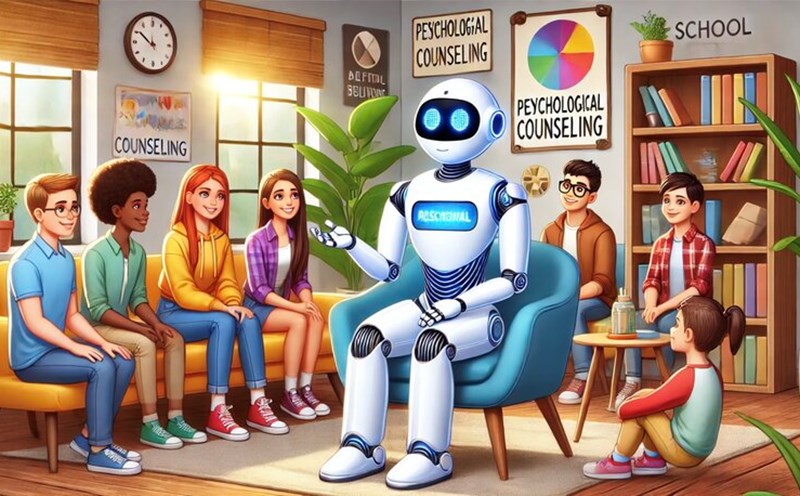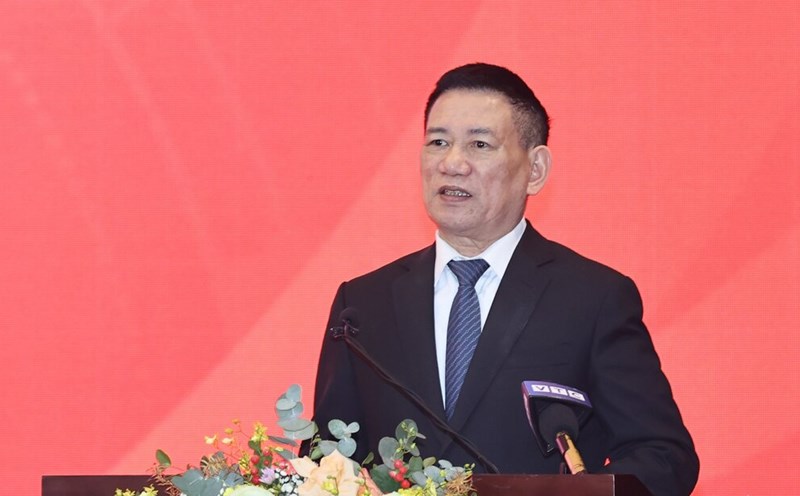The development of AI technology has created breakthroughs in most fields, and the psychological consulting industry is no exception. As electronic devices become more and more popular in daily life, technology experts have made efforts to create psychological chatbots, to provide children and users with advice and comfort in difficult times.
Instead of relying entirely on the presence of parents or therapists, many children can now find a virtual assistant, a friend who is always ready to listen at any time.
Applications such as Troodi, a chatbot integrated into the Troomi phone, have allowed children to share worries, sadness, pressure in studying or changes in life. When talking to Troodi, they can confide in moving their home, sharing with friends or worrying about tests, and receive gentle, sympathetic feedback. Parents appreciate the chatbot for bringing peace of mind to their children, because Troodi's advice is often similar to what they want to convey.
However, in addition to the obvious benefits, the use of AI in psychological consultation also raises many questions and concerns about reliability as well as the ability to replace human interaction. Some psychologists warn that while chatbots can help children relieve stress, they cannot completely replace in-depth dialogues between children and adults. These warnings become even more urgent as some children share their feelings via chatbots without reporting to their parents, leading to the risk of not receiving timely intervention when necessary.
In addition, monitoring and managing information exchanges between children and chatbots is also a difficult problem, requiring developers to come up with strict safety measures. In that context, the question arises whether AI technology really plays an effective and safe role as psychological counseling for humans?
Artificial Intelligence participates in psychological counseling
According to the Wall Street Journal, in recent years, the emergence of chatbots that support mental health has created a new wave in the field of psychological counseling. A typical example is Troodi, chatbot integrated into Troomi phones with a special design to help children share anxiety, sadness and pressures in daily life.
When children like Taylee, a 14-year-old girl, feel anxious about having to move to a new neighborhood, leave close friends or face the pressure of tests, Troodi is always ready to listen and give gentle advice, psychological support.
Troodi's responses are often confirming and empathy, helping children feel not alone in the difficulties they are facing. It feels like having a friend always by your side, even though it is just a computer system, has brought special comfort to the weak souls.
AI technology has helped turn Troodi into a virtual friends, always present in every moment, even when parents are drunk. This is especially helpful when children need to share their confidences at night, when support from the family may not be timely. Parents said they feel secure when their child is able to talk to Troodi because the chatbot not only provides advice based on stress management principles and conflict resolution, but also does so with a neutrality that sometimes advice from relatives may not achieve.
This technology is built on the GPT-4 platform, with guidance and censorship from clinical experts, to ensure that Troodi's responses are always consistent and safe for children's psychology.
Integrating AI into the field of psychological counseling is not only aimed at supporting children in difficult times, but also a potential solution to reduce the burden on therapists. As the need for psychological counseling increases and professional resources are limited, AI can act as a powerful assistant, helping experts monitor children's emotional conditions and detect early signs of danger such as intention to harm themselves.
Parents can also review chats via chat logs, receive real-time emotional status reports, and receive warnings when there are signs that require adult intervention. Although AI cannot completely replace therapists, it contributes to creating an additional protective layer, helping children have more space to release stress and receive timely support.
Improvements in AI technology have made psychological chatbot increasingly smarter, capable of understanding and responding to users' emotions naturally. However, there are still many challenges to overcome to ensure that this technology always operates stably and safely, especially when the main users are children, people with a young psychology and vulnerability.
Benefits and risks
Applying artificial intelligence in the field of psychological consultation brings many clear benefits, but there are also notable risks.
One of the outstanding benefits is the ability to provide 24/7 spiritual support for children. When a child feels worried or sad, Troodi is always ready to listen and give advice, regardless of the time or circumstances. This helps children feel safe and cared for, especially when parents are away or busy. In addition, the neutrality of a chatbot helps children share their emotions without daring to tell their loved ones, thereby creating conditions for them to handle emotions more objectively.
Another benefit is that using AI in psychological counseling can help reduce the burden on therapists. As the number of children needing support increases, the limited resources of therapists are often not enough to meet their needs. Chatbot like Troodi can become a supplementary support tool, helping to monitor children's emotional conditions and detect early signs of needing intervention. Parents can also follow conversations to better understand their children's emotions and moods, thereby taking timely and effective support measures.
However, besides the benefits, using AI in psychological counseling also has many risks. One of the biggest concerns is the possibility of replacing human interaction. Psychologists warn that while chatbots can help children relieve stress, they cannot completely replace empathy and sophistication in face-to-face conversations between children and adults. When children rely solely on AI to share their feelings, it can lead to their refrain from opening their hearts and communicating with their families or therapists, leading to the risk of lack of timely intervention when necessary.
Another risk is misunderstandings or misunderstandings in chatbot responses. For example, some parents have reported that chatbots sometimes misunderstand the meaning of certain words or statements from children, leading to inappropriate or misunderstanding responses. In some cases, chatbot conversations can lead to unwanted consequences without adult supervision. In addition, the use of AI for psychological counseling also raises questions about privacy and information security, as children's conversations can be recorded and analyzed without full parental consent.
To mitigate these risks, AI developers have tried to integrate tight control measures, from the use of censorship algorithms to providing emotional state reports to parents. However, no technology is perfect, and adult supervision is always an indispensable factor.
Psychologists emphasize that AI should be viewed as a supporting tool, helping to expand interaction and tracking capabilities, and should not completely replace the presence and role of people with experience in this field.
In general, using artificial intelligence to provide psychological counseling for children has many promises in solving psychological crises and supporting families in the digital age. However, to achieve optimal results, there needs to be close coordination between technology, psychologists and parents' supervision, to ensure that AI support is always provided safely, effectively and humanely.










